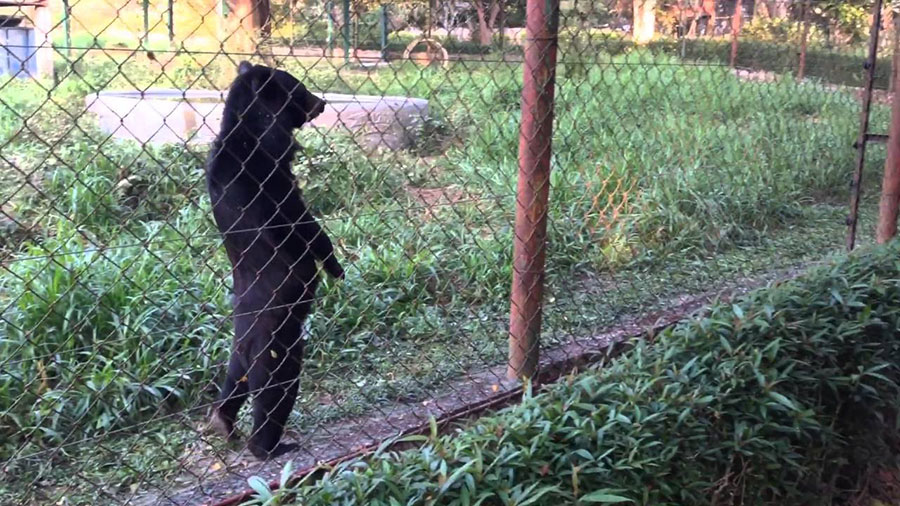The possible death of Pedals, a well-known black bear who walks on its hind legs, has provoked new protests against New Jersey’s black bear hunting season as human rights activists describe it as an inhumane activity.
New Jersey’s long-debated black bear hunts seem to never end. The activity is supported by hunters and wildlife officials, who say it helps to keep under control the population, avoiding encounters between bears and humans. On the other hand, hunt opponents are preparing to protests during the second segment of this year’s hunt, which is scheduled to run from Monday to Saturday.

“Here was one particular bear that people may have known, seen or just followed on Facebook. They felt a connection with Pedals,” said Janine Motta, programs director for the Bear Education and Resource (BEAR) program. “When he was killed, it became personal for those who loved him, and that translated into a greater awareness of the hunt in general and the realization that all bears who are killed are important,” he added.
Pedals: New Jersey’s sweetheart
New Jersey is home to the biggest black bear population in the United States. There are around 3,500 black bears in the state, according to wildlife officials. One of them was Pedals, a black bear whose upright walk captivated social media when he was caught on a video in Jefferson Township about two years ago.
Wildlife officials believe Pedals was killed during the first phase of the 2016 hunt, back in October. Pedals walked on its two back legs since it had an injury in its front paws. He was last seen in June.
Recently the New Jersey Department of Environmental Protection released some photos showing a culled black bear who had similar injuries in the paws. It is believed it was Pedals. However, its identity has not been confirmed since Pedals was never tagged.
The presumable death of the beloved black bear has risen opposition to the hunting season in New Jersey and has brought critics to the Environmental authorities since they support the killing of black bears.
“It is an atrocity for a department that is supposed to look after the management of all wildlife to recommend this bear hunt,” said Kathleen Schatzmann, the New Jersey state director for The Humane Society of the United States. “To call it anything besides a trophy hunt is ridiculous.”
New Jersey’s black bear hunting season
Proponents of the annual hunt say that if there is no black bear population control, then it outgrows its natural food resources, increasing the risks of dangerous bear-human interactions. New Jersey is one of the 33 states where hunting is allowed. It wasn’t always like that. Actually, black bear hunting in New Jersey was banned for about 30 years, but it was reinstalled in 2003.
On the subject, Bob Considine, spokesman for the New Jersey Department of Environmental Protection said that hunting mixes sciences and data together. He says that the population is controlled and that it hasn’t been reduced by the hunters.
Nevertheless, the opponents say that the reasoning of the authorities is based on a misunderstanding, since black bears, when confronted with human, are not likely to attack them. Their instinct is to run away or to climb a tree. According to BEAR’s expect Dr. Lynn Rogers, it is 247 times more likely to be killed by a lightning that to be attacked by a black bear.
Source: Federal News Radio
